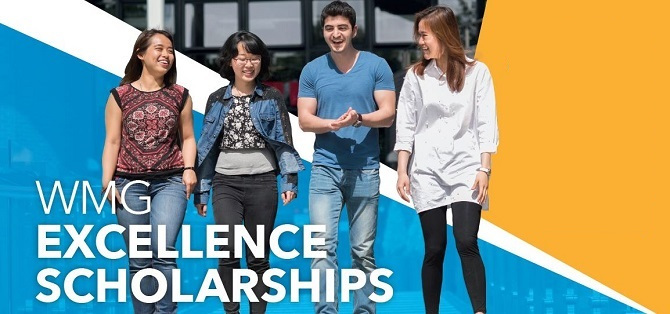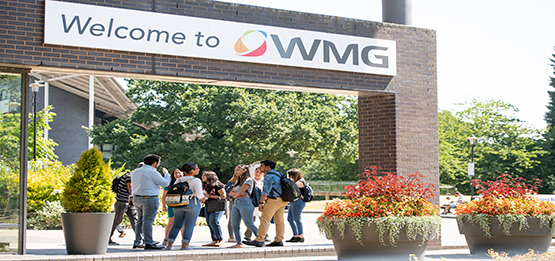Supply Chain and Logistics Management (MSc) (2022 Entry)
About this taught graduate course
Course overview
As our global reach becomes increasingly important, there is a need and opportunity for organisations to connect together to deliver added value to the consumer through interlinked supply chains and efficient logistics.
The central content is the concept of a supply network: constructing the relationships that bring it into being; commissioning the technologies that enable it to operate; managing the input, the material and the information flow; and distributing the product.
During the course, you will develop the skills to evaluate, manage, and improve supply chain processes. You will learn to design and develop strategy, as well as understanding the operational functions of businesses.
General entry requirements
Minimum requirements
2:i undergraduate degree (or equivalent) in a relevant subject.
Candidates with a UK 2:ii (or equivalent) may be accepted upon demonstration of relevant professional experience.
English language requirements
You can find out more about our English language requirements. This course requires the following:
- Band A
- IELTS overall score of 6.5, minimum component scores not below 6.0
International qualifications
We welcome applications from students with other internationally recognised qualifications.
For more information, please visit the international entry requirements page.
Additional requirements
Candidates with professional experience should include their CV with their application.
Core modules
- Logistics and Operations: Strategy and Management
- Supply Chain Management
- Procurement and Inventory Management
- Storage and Warehousing Techniques
- Transport Techniques and Management
- Study, Professional and Analytical Skills
Optional modules
Two optional modules should be chosen from the following list, allowing you the flexibility to tailor the course in line with your specific interests:
- Global Business Environment
- International Business Development
- Operations Strategy for Industry
- Innovation
- Organisations, People and Performance
- Supply Chain Business Finance
- Management of Change
Read the module descriptions for this course on WMG's website.
Teaching
This course has two components – a taught component accounting for two thirds of your time and effort, and a research component (dissertation) accounting for.
For the taught component, we blend synchonous and asynchronous lectures and seminars. A variety of innovative teaching methods are integrated into the delivery, such as multi-media case studies, group work, game playing, debate, quiz, video and a range of online platform-based interactions. Each module is delivered intensively over one full week or two half weeks, and classes are deliberately kept small to encourage interaction. Larger scale lectures are delivered for some modules and are backed up by seminar and syndicate activities.
Our module leaders have extensive industry experience. Guest speakers from industry also contribute regularly, bringing real-world insight into your learning experience.
Class sizes
Overall this course can accommodate up to180 students, with several modules being delivered in smaller classes of 25-30.
Typical contact hours
Our courses are modular in structure, with modules generally being taught in intensive one-week blocks from Monday to Friday, 9.00am - 6.00pm. Some modules will be taught over two half weeks or more, and occasionally you may be required to attend weekend sessions.
In addition to the taught component, you will have online pre-module preparation, and a substantial Post Module Assignment (PMA) following each module.
Each module accounts for 150 hours of learning time, divided between pre-work, in-module time, and post module assessment.
Assessment
At the end of each module, you will be given a Post Module Assignment (PMA) based on the learning objectives of that module. This is a piece of assessed written work which should take around 100 hours to complete. Most modules also have some in-module assessed work.
For the research component, each student undertakes a major individual project, which will develop your research and analytical skills and enable you to specialise. This project accounts for 33% of your overall credits and is submitted in the form of a dissertation at the end of the year.
Reading lists
Most departments have reading lists available through Warwick Library. If you would like to view reading lists for the current cohort of students you can visit our Warwick Library web page.
Your timetable
Your personalised timetable will be complete when you are registered for all modules, compulsory and optional, and you have been allocated to your lectures, seminars and other small group classes. Your compulsory modules will be registered for you and you will be able to choose your optional modules when you join us.
Scholarships and bursaries

Scholarships and financial support
Find out about the different funding routes available, including; postgraduate loans, scholarships, fee awards and academic department bursaries.

WMG funding opportunities
WMG will be awarding over £1million in scholarships and bursaries to students commencing study on our full-time MSc programmes

Living costs
Find out more about the cost of living as a postgraduate student at University of Warwick.

Find out how to apply to us, ask your questions, and find out more.

Taught course applications
Here is our checklist on how to apply for taught postgraduate courses at Warwick.

Application advice from WMG
Please see the WMG department web pages for specific application advice and information.

After you’ve applied
Find out how we process your application.

Applicant Portal
Track your application and update your details.

Admissions statement
See Warwick’s postgraduate admissions policy.

Join a live chat
Ask questions and engage with Warwick.
Postgraduate Open Day
Our Postgraduate Virtual Open Day will help you find out more about your course of interest, as well as general topics like applying to Warwick, accommodation, careers and funding.Postgraduate fairs
Throughout the year we attend exhibitions and fairs online and in the UK. These events give you the chance to learn about our Master's and PhD study routes, and the wider context of postgraduate study.
Live chats
Every week, you can connect directly with representatives from Warwick, who will be answering your questions on applying to and studying postgraduate studies at Warwick.
Departmental events
Some academic departments hold events for specific postgraduate programmes, these are fantastic opportunities to learn more about Warwick and your chosen department and course.
Connect with us
Want to hear more about postgraduate study at Warwick? Register your interest and find out more.


